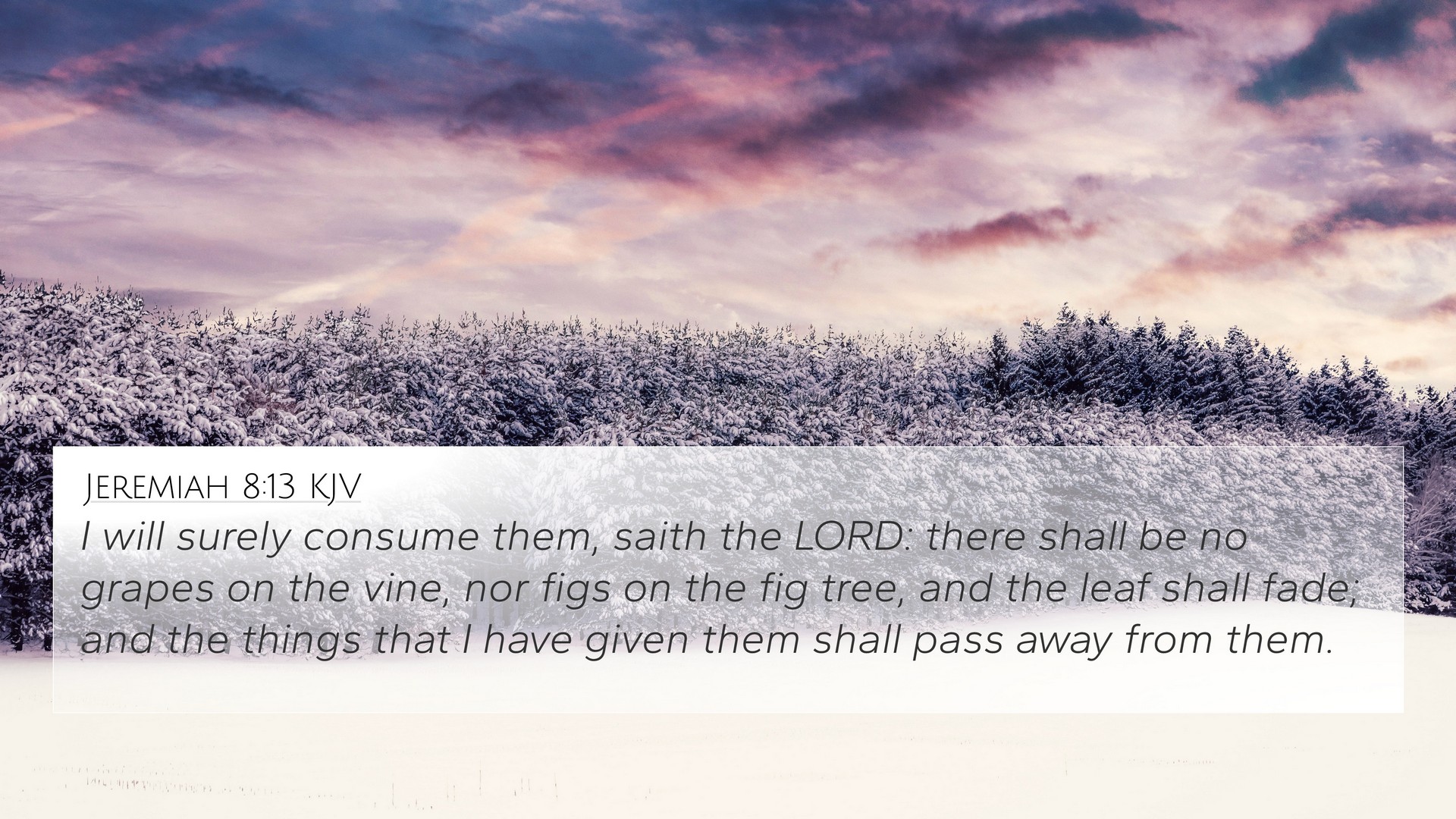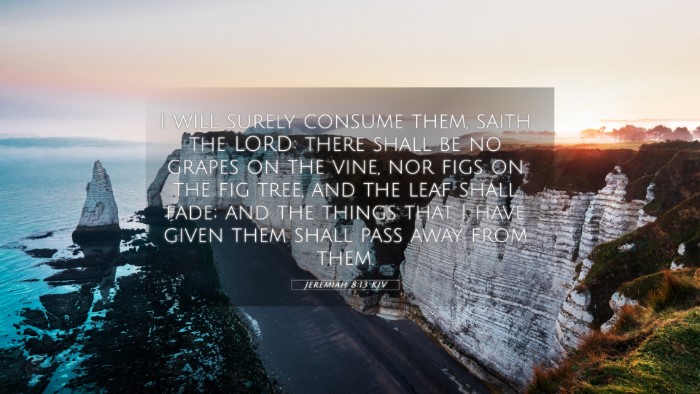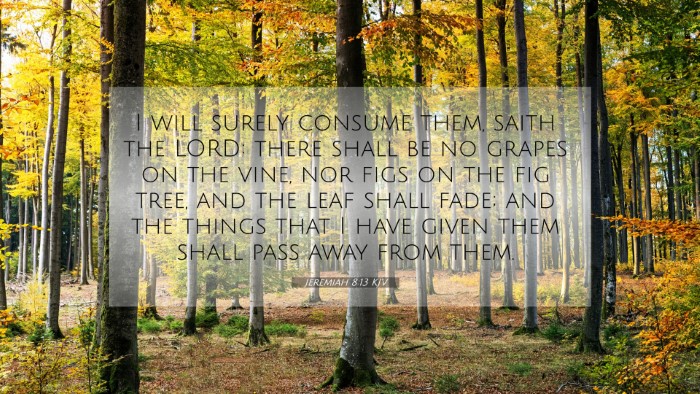This section features a detailed cross-reference designed to enrich your understanding of the Scriptures.
Below, you will find carefully selected verses that echo the themes and teachings related to Jeremiah 8:13 KJV. Click on any image to explore detailed analyses of related Bible verses and uncover deeper theological insights.
 Matthew 21:19 (KJV) »
Matthew 21:19 (KJV) »
And when he saw a fig tree in the way, he came to it, and found nothing thereon, but leaves only, and said unto it, Let no fruit grow on thee henceforward for ever. And presently the fig tree withered away.
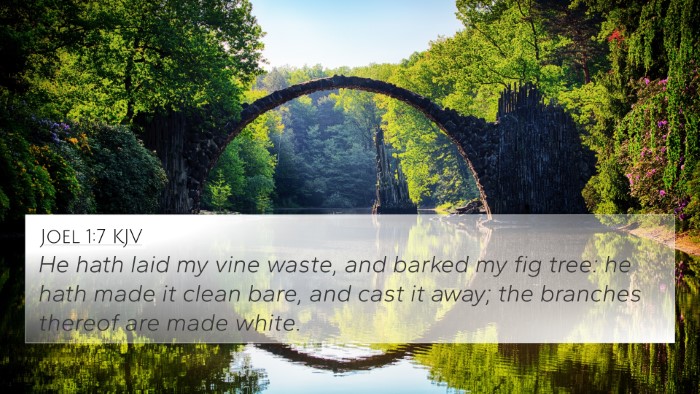 Joel 1:7 (KJV) »
Joel 1:7 (KJV) »
He hath laid my vine waste, and barked my fig tree: he hath made it clean bare, and cast it away; the branches thereof are made white.
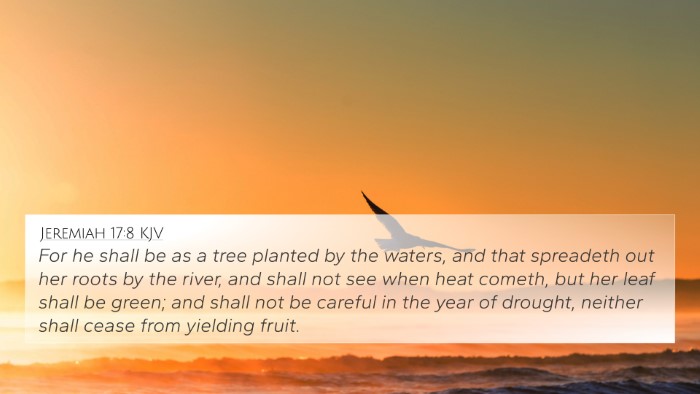 Jeremiah 17:8 (KJV) »
Jeremiah 17:8 (KJV) »
For he shall be as a tree planted by the waters, and that spreadeth out her roots by the river, and shall not see when heat cometh, but her leaf shall be green; and shall not be careful in the year of drought, neither shall cease from yielding fruit.
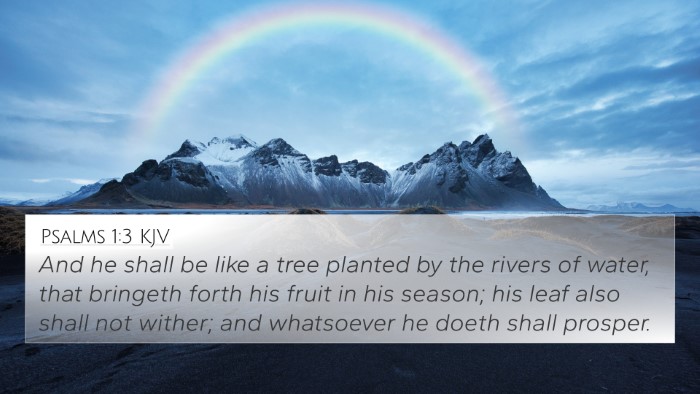 Psalms 1:3 (KJV) »
Psalms 1:3 (KJV) »
And he shall be like a tree planted by the rivers of water, that bringeth forth his fruit in his season; his leaf also shall not wither; and whatsoever he doeth shall prosper.
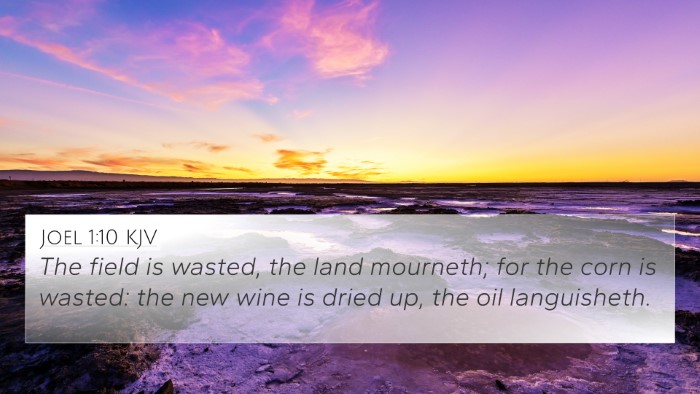 Joel 1:10 (KJV) »
Joel 1:10 (KJV) »
The field is wasted, the land mourneth; for the corn is wasted: the new wine is dried up, the oil languisheth.
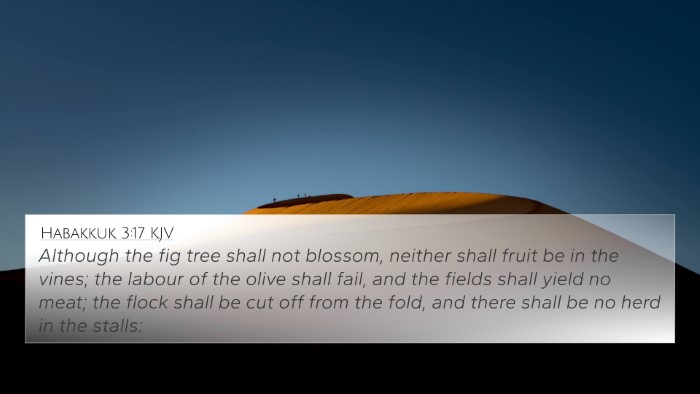 Habakkuk 3:17 (KJV) »
Habakkuk 3:17 (KJV) »
Although the fig tree shall not blossom, neither shall fruit be in the vines; the labour of the olive shall fail, and the fields shall yield no meat; the flock shall be cut off from the fold, and there shall be no herd in the stalls:
 Haggai 2:17 (KJV) »
Haggai 2:17 (KJV) »
I smote you with blasting and with mildew and with hail in all the labours of your hands; yet ye turned not to me, saith the LORD.
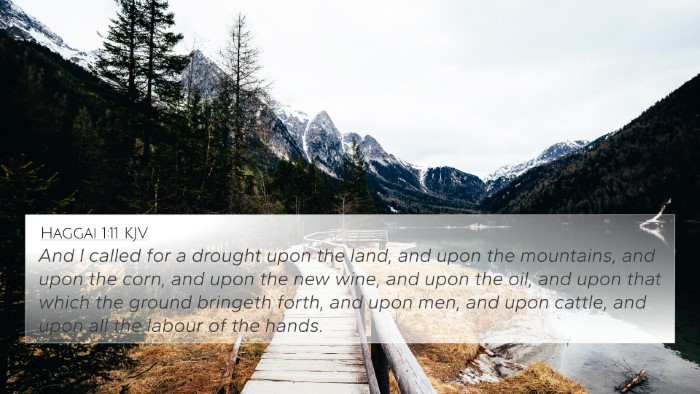 Haggai 1:11 (KJV) »
Haggai 1:11 (KJV) »
And I called for a drought upon the land, and upon the mountains, and upon the corn, and upon the new wine, and upon the oil, and upon that which the ground bringeth forth, and upon men, and upon cattle, and upon all the labour of the hands.
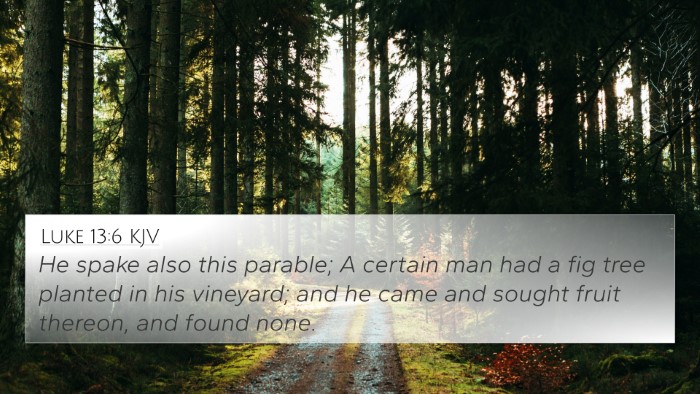 Luke 13:6 (KJV) »
Luke 13:6 (KJV) »
He spake also this parable; A certain man had a fig tree planted in his vineyard; and he came and sought fruit thereon, and found none.
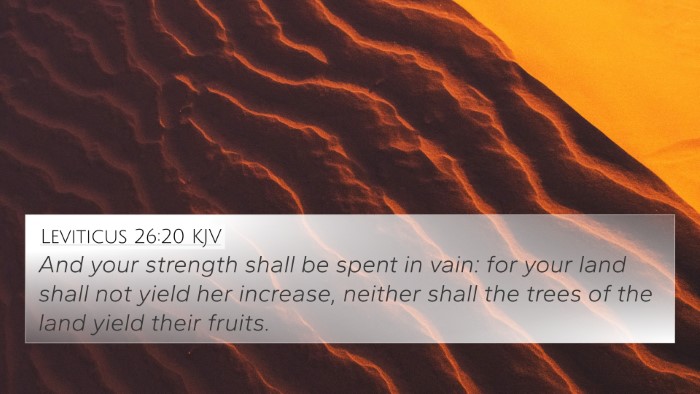 Leviticus 26:20 (KJV) »
Leviticus 26:20 (KJV) »
And your strength shall be spent in vain: for your land shall not yield her increase, neither shall the trees of the land yield their fruits.
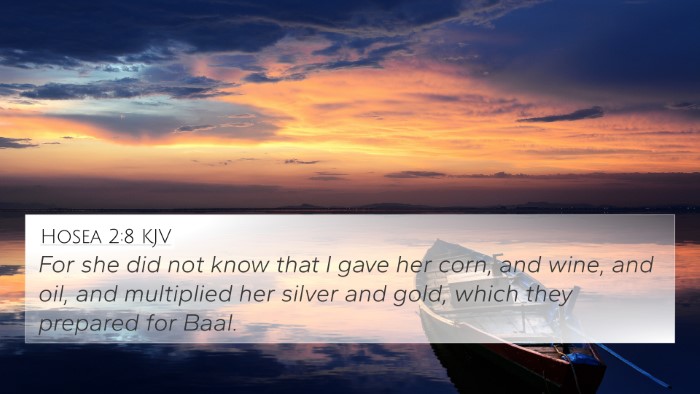 Hosea 2:8 (KJV) »
Hosea 2:8 (KJV) »
For she did not know that I gave her corn, and wine, and oil, and multiplied her silver and gold, which they prepared for Baal.
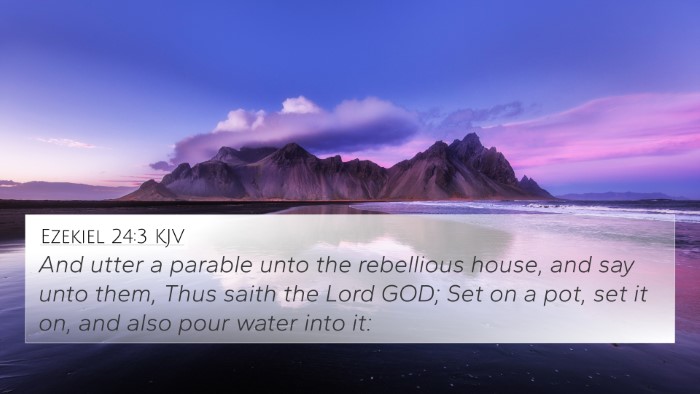 Ezekiel 24:3 (KJV) »
Ezekiel 24:3 (KJV) »
And utter a parable unto the rebellious house, and say unto them, Thus saith the Lord GOD; Set on a pot, set it on, and also pour water into it:
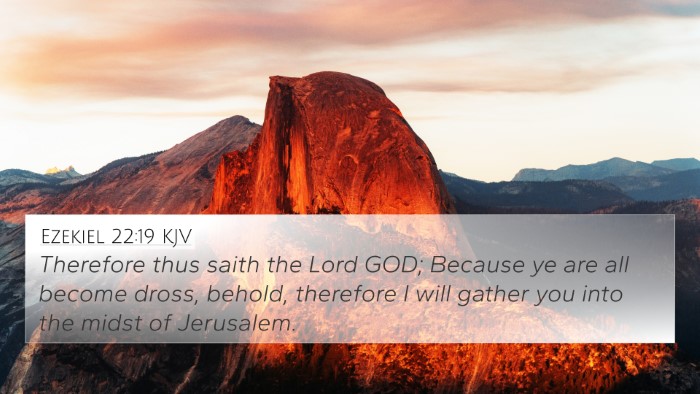 Ezekiel 22:19 (KJV) »
Ezekiel 22:19 (KJV) »
Therefore thus saith the Lord GOD; Because ye are all become dross, behold, therefore I will gather you into the midst of Jerusalem.
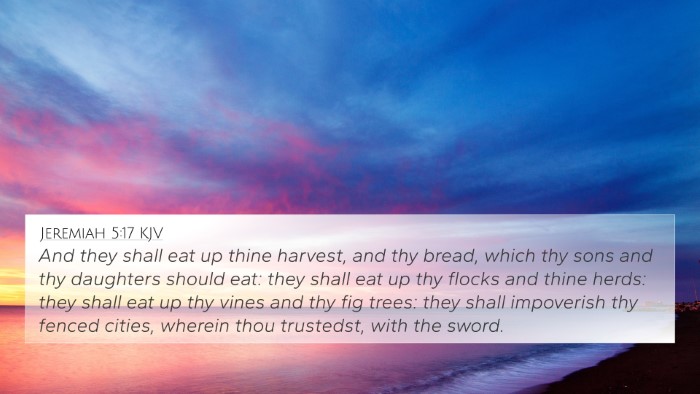 Jeremiah 5:17 (KJV) »
Jeremiah 5:17 (KJV) »
And they shall eat up thine harvest, and thy bread, which thy sons and thy daughters should eat: they shall eat up thy flocks and thine herds: they shall eat up thy vines and thy fig trees: they shall impoverish thy fenced cities, wherein thou trustedst, with the sword.
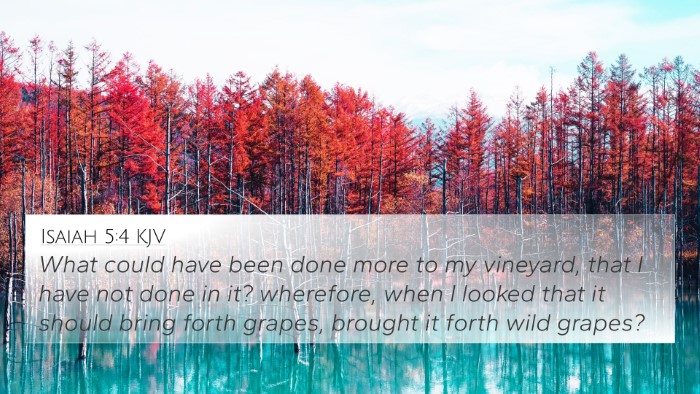 Isaiah 5:4 (KJV) »
Isaiah 5:4 (KJV) »
What could have been done more to my vineyard, that I have not done in it? wherefore, when I looked that it should bring forth grapes, brought it forth wild grapes?
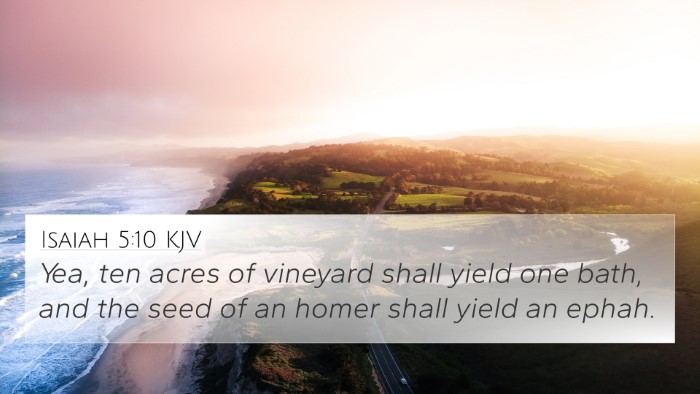 Isaiah 5:10 (KJV) »
Isaiah 5:10 (KJV) »
Yea, ten acres of vineyard shall yield one bath, and the seed of an homer shall yield an ephah.
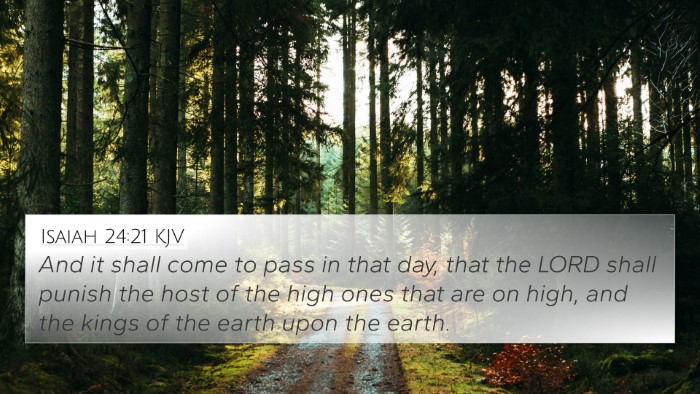 Isaiah 24:21 (KJV) »
Isaiah 24:21 (KJV) »
And it shall come to pass in that day, that the LORD shall punish the host of the high ones that are on high, and the kings of the earth upon the earth.
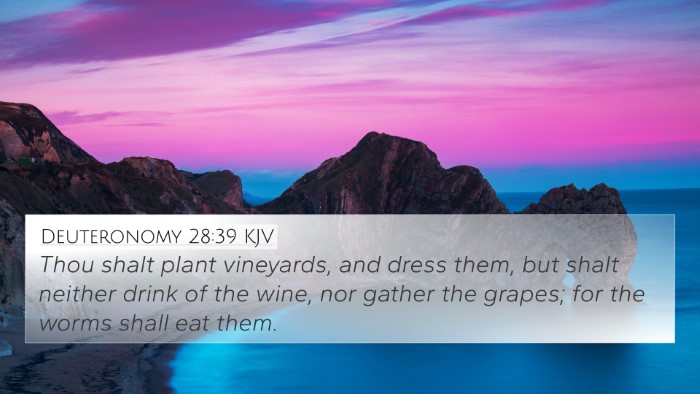 Deuteronomy 28:39 (KJV) »
Deuteronomy 28:39 (KJV) »
Thou shalt plant vineyards, and dress them, but shalt neither drink of the wine, nor gather the grapes; for the worms shall eat them.
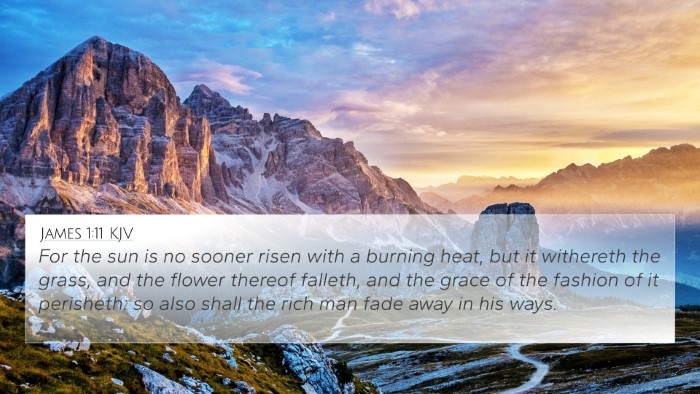 James 1:11 (KJV) »
James 1:11 (KJV) »
For the sun is no sooner risen with a burning heat, but it withereth the grass, and the flower thereof falleth, and the grace of the fashion of it perisheth: so also shall the rich man fade away in his ways.
